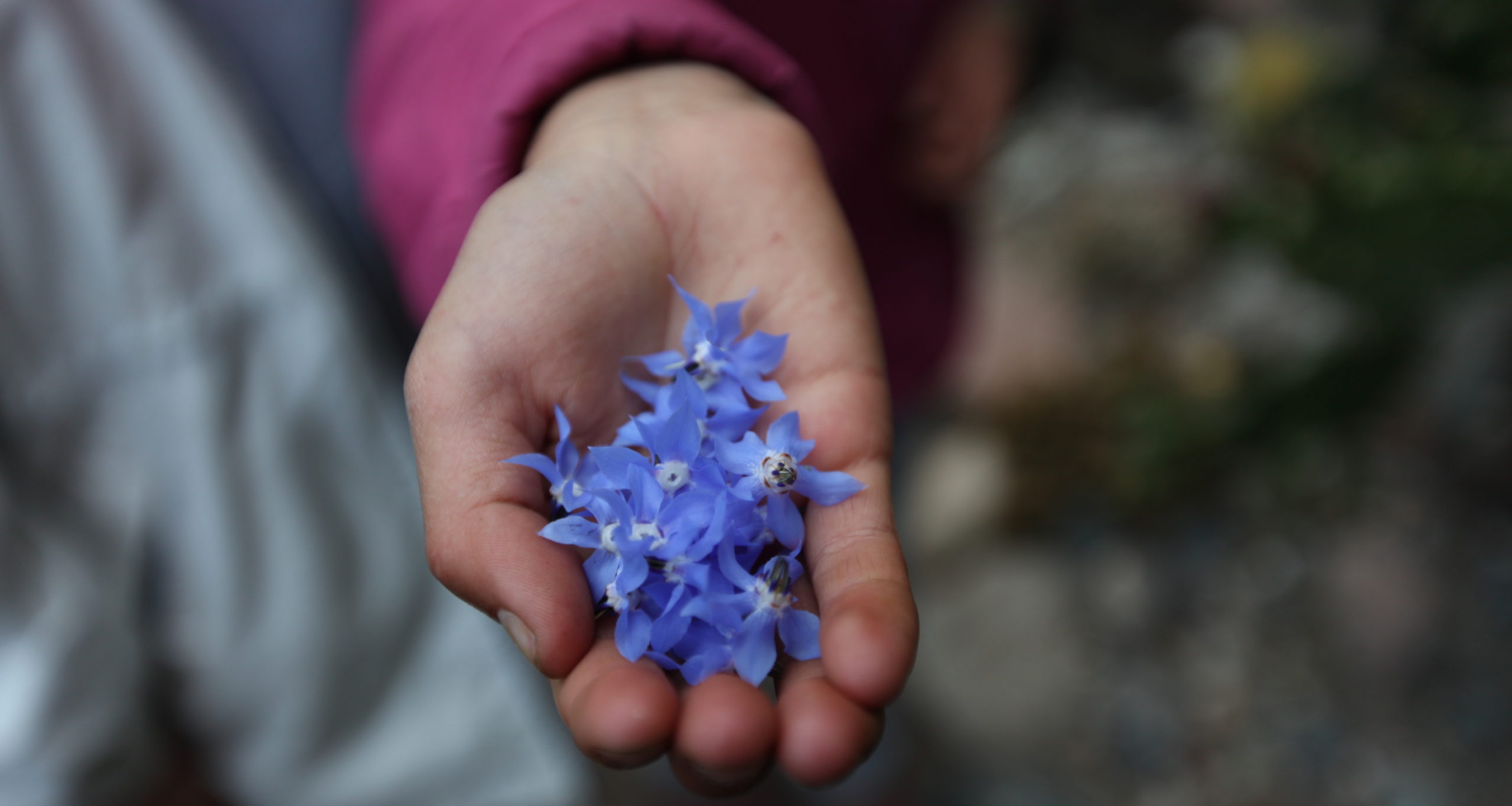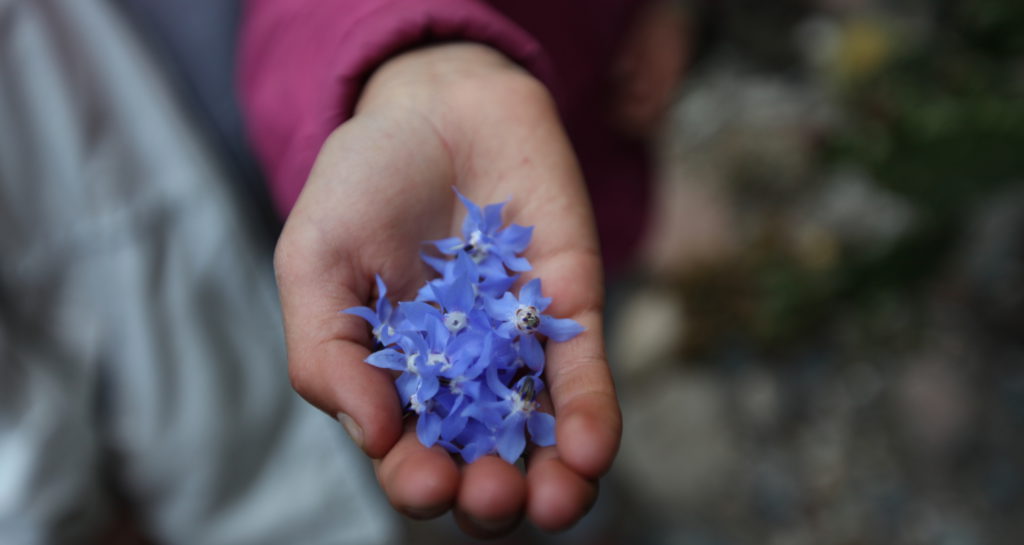
When we come to Issyk Kul, we usually try to meet our friends Andrey, Olga and their wonderful children who live thirty kilometres away from our future art residency.
We met them for the first time almost ten years ago in their unusual home in an ordinary village near Lake Issyk-Kul. Everything in their house attracted our attention: the system of passive heating through the attached greenhouse, the solid floor made of clay and the insulation of the house with straw. At that time we were beginning to plan building a house in a village and were not familiar with the principles of eco-building or permaculture practised by our new friends and mentors.
The couple used to live in Bishkek and had their own business there. On weekends they did the usual things that quite successful people do: ski in the mountains in winter and fly paragliders in the summer. Then they suddenly moved from the city to the countryside to begin a new life full of challenges.
The main reason for this radical change of life was their concerns about the future of their children. We were impressed by how they were home schooling their kids to protect them from many psychological and physical traumas of public schools. They have succeeded in educating their children to live in harmony with themselves and nature. You only need talk to them to understand how open-minded, kind and creative they are. Andrey and Olga and some of their older kids generously shared their knowledge and experience of sustainable life, permaculture in Kyrgyzstan and many other fascinating things.
In August during our workshop on eco-building, we took the chance to visit their hospitable home to do an interview.
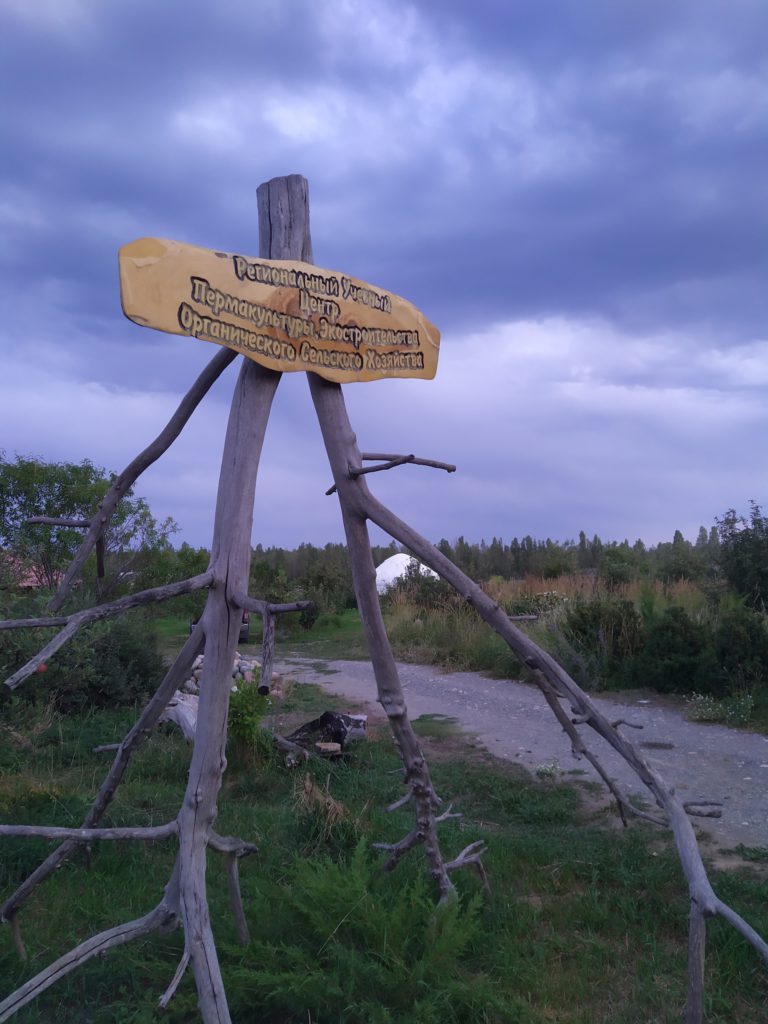
Muratbek: There’s a sign hanging on your driveway: “Regional Training Centre for Permaculture, Eco-Building and Organic Agriculture.” We know you attended some seminars led by Sepp Holzer and once told us that you had some criticisms of what he was doing. In general, could his methods be widely used in our conditions?
Andrey: Actually they are applicable, but in our climate not everything will work properly with such a small amount of precipitation. For this reason, it is necessary to build some special irrigation systems. But most important is a way of life; you should not cling to these principles. What I did not really like was his capitalist principles to measure everything with money.
Muratbek: Do you think that’s because they are capitalists, and the idea can’t be promoted without this?
Andrey: I don’t think that the idea of permaculture is in the first place for him. He may have come up with it as a way of life. I mean, he writes in his story how agricultural scientists came to him from the academy. I do not know how they got to him; he had a cafe on his property, guesthouses and so on. They noticed this was an unusual approach and said: “Oh, this is permaculture!”
Muratbek: So he didn’t even know what permaculture was?
Andrey: Yes, but he realized his approach was permaculture. And then when he found out that the first founder of permaculture was Bill Mollison, it hit him so hard. He then insisted his method be called “Sepp Holzer’s Permaculture”. And my opinion of him went down.
Muratbek: So, for you, permaculture and ego are incompatible?
Andrey: I would say, yes. [Laughs] Of course, he has done very interesting projects, like introducing permaculture to the city. But when you tell him, “Oh, you have to take pictures and put them out so that artists and designers can use them,” he responds: “Free of charge? No way!” [Laughs]
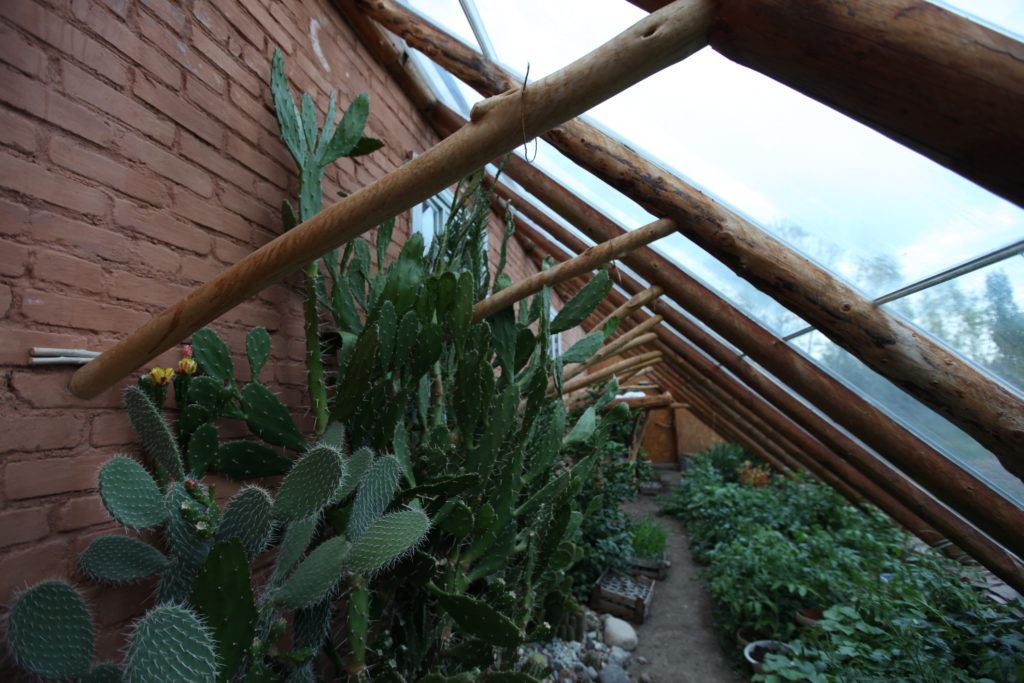
Olga: To talk seriously, the simplest version of permaculture is a diversity of plants on the site, which need minimal care. For example, we don’t mow the grass under the trees; it’s a source of nectar for bees and insects, for chickens, and plus we would then have to work more. If you begin to work too much by mowing grass, you kill some biocenoses. People tired of living in the countryside because of the hard work, but you could mow the grass only in some places or not even mow it at all, and just plant trees and gather crops to provide for yourself. Instead of planting, for example, only one apricot orchard, selling it cheap and buying all the rest. You can have a small vegetable garden, a small apiary. If there is a source of water, you can keep poultry or fish. You can plant different plants, to have a little bit of everything, to make your own food. This is the simplest definition of permaculture.
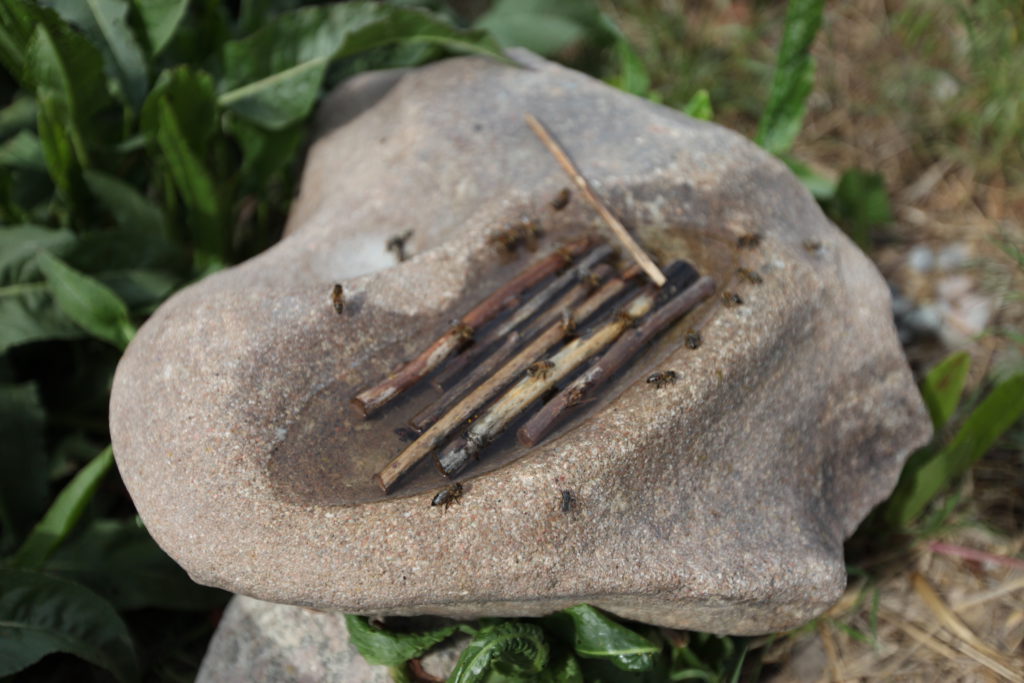
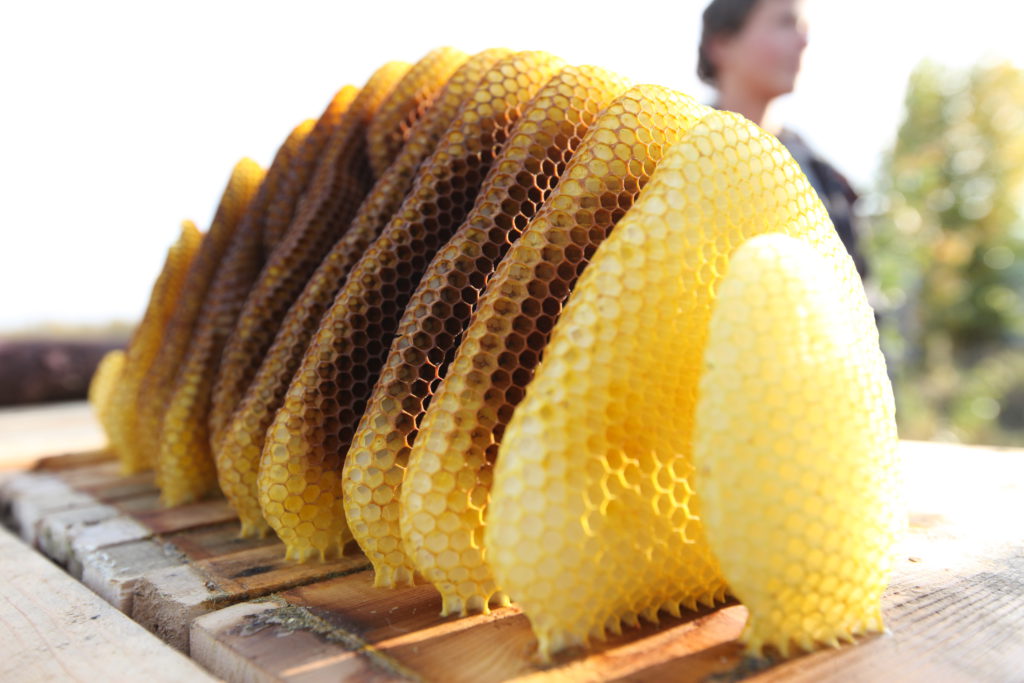
You can take things further, such as with larger biocenoses like a forest or field, and make a global project. We are certainly not mature enough for that. Not yet. We don’t have plans for such a project while we remain focused on the cultivation of grain. We don’t use chemicals, and leave the straw to rot in the field to grow crops and improve the soil. The effects are already noticeable after just ten years.
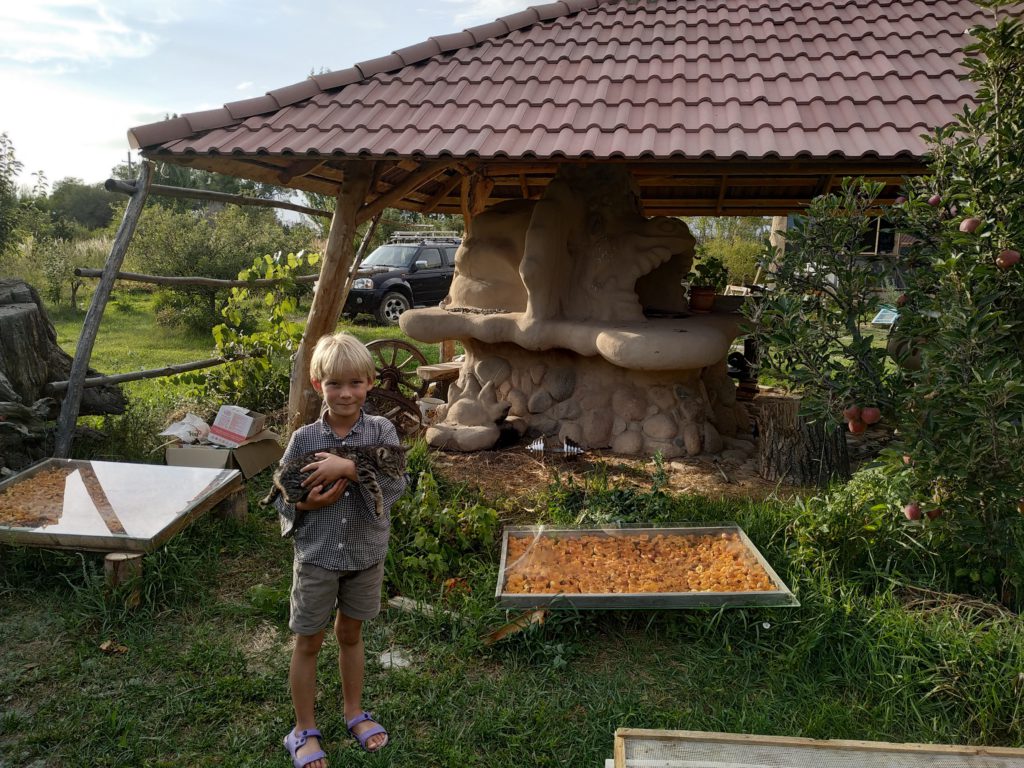
Gulnara: And what is needed to develop more complex projects?
Olga: Generally, it should be a state-run project, because the country will get nowhere without planning and a planned economy. For example: everyone grows garlic, it gets cheaper and farmers simply become poor. The market rules everything, and that’s where the disruptions come from. With the absence of a planned economy, the land degrades, because they squeeze everything out of the land and leave it for dead. They pour in chemicals, make money and then abandon the land. In general, the land on the planet is degrading faster than it is regenerating. We’re going to reach a not-so-good point one day soon when food prices go up. Normal food made without chemicals is rare now. Everyone is using chemicals.
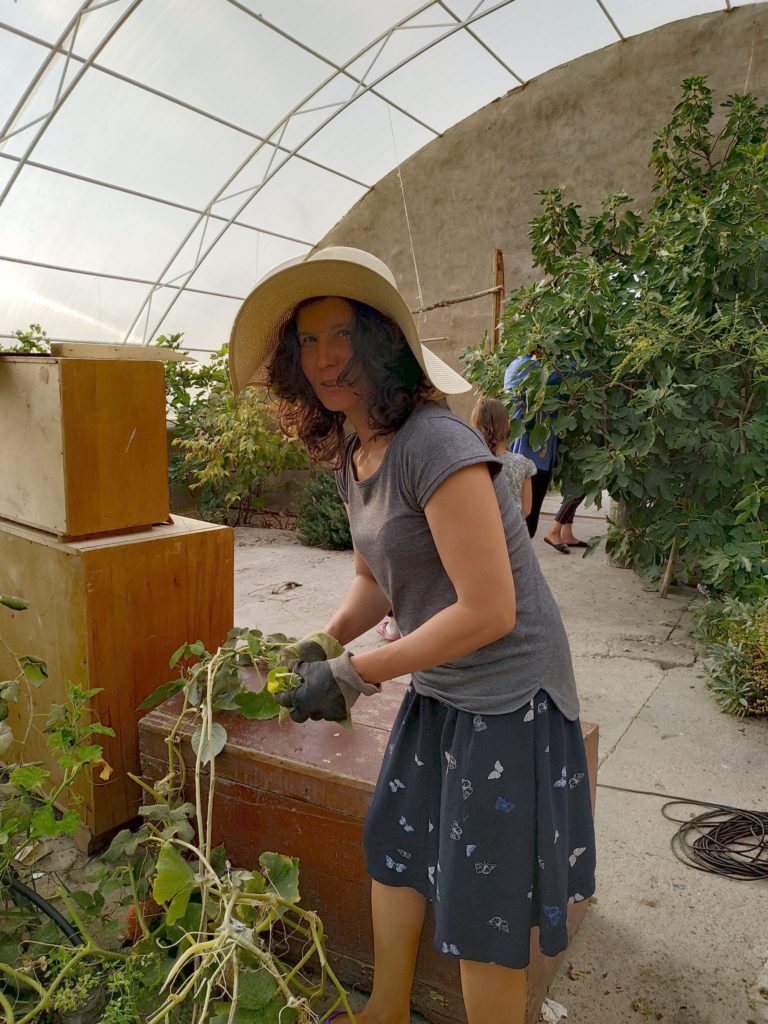
Gulnara: What should be done to avoid this?
Olga: For example, create windbreaks in the fields with a wide strip of trees and grass, where predatory insects live. These fly into the fields and destroy pests. Mushrooms grow there and play a very important role. But people are massively harvesting and destroying mushrooms, greatly reducing their numbers. The fungus can be several kilometres long. They take useful substances from one tree, give it to other substances and then pass them to another tree through the fungus. This connection of trees under the soil through mushrooms is like the exchange of information. Just like in movie Avatar, mushrooms provide antibiotics to many trees. The immunity of plants depends on fungi. It’s very interesting to observe these interrelationships in nature. But humankind is destroying them.
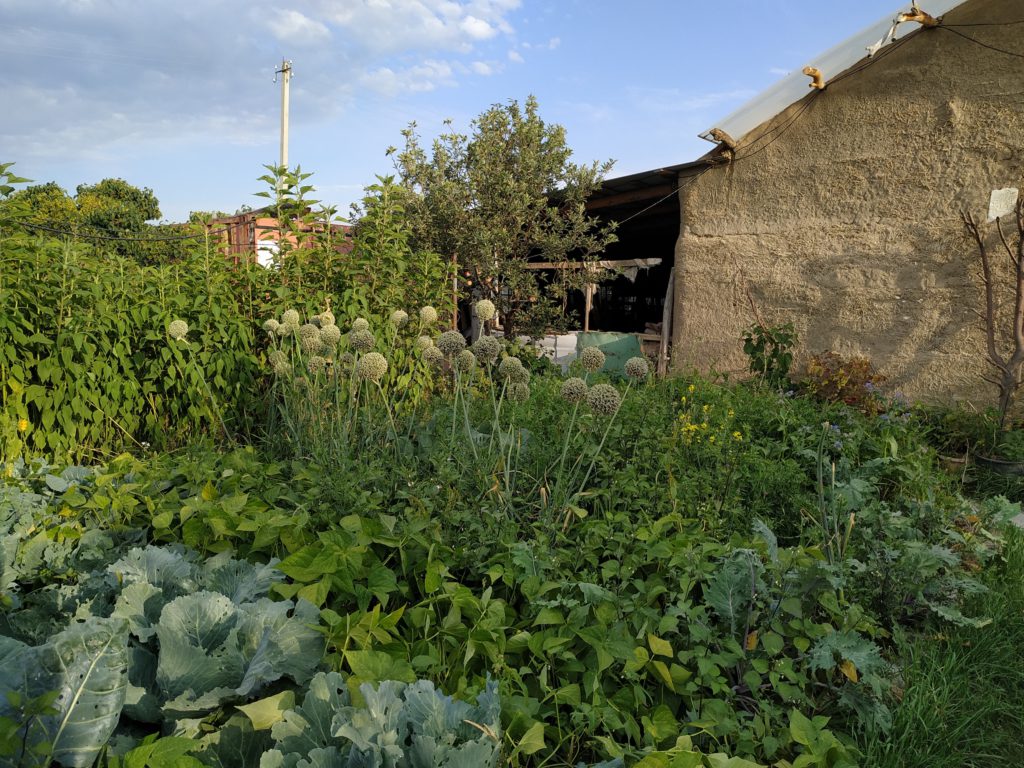
Gulnara: Now we can see how all this degradation is going on.
Olga: It will go on by inertia. So the only way for humankind is to back to nature in some way. I’m not saying that we have to go back to the caves. We need to examine our impact on nature. Look at what is going on with our lake: people throw plastic bags, leave bottles, food on the beach . . . My God, I want to tell them: “Do not to go anywhere, stay at home with your computer, don’t pollute.” The ecosystem of Issyk-Kul is being actively destroyed now. It will take millions of years for it to recover after all these tourists. And it’s impossible to swim on the beach near Cholpon-Ata and Bosteri. What is next step? Sooner or later everyone will come to the last point of destruction. Where will they all go? To Mars?
Gulnara: In this situation it is probably very important to create a community of like-minded people here in Grigorievka or in Kyrgyzstan?
Olga: I think we need to build a local community. There are only a few people from the village, so we don’t have something big. I think it will take a few more years and when such communities are organized on a voluntary basis, then there can be an exchange or some meetings. But that is the future. No one will give us it, and the state is interested in neither organizing nor paying for circles, so we have to do it ourselves.
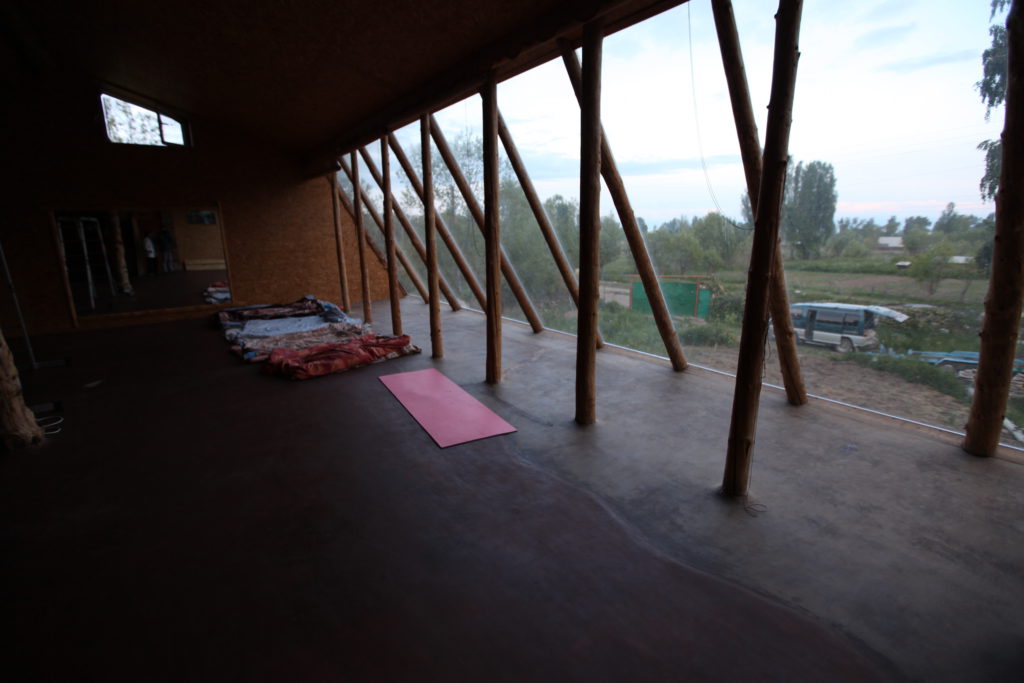
Gulnara: What brings you together?
Olga: We have a small community of our friends, then a few villagers. We just do sports or yoga. We go to the mountains or get together for bachata – I organized a dance. I did a little anatomy class this year. We do home concerts and read poetry with the kids. It’s very cool. Now we’re going to launch an educational project again in the autumn. We will meet once every two weeks and prepare some kind of theme. It may be historical, philosophical, cultural or from a different area. We take one topic and develop it, and then the children prepare it somehow. It should be an interesting short report with a discussion. That’s the kind of thing we want to run.
Gulnara: That’s great. And where will it be, at school?
Olga: No, it will be in our house. We will invite people from the village who are interested in participating. I do not think there will be a lot, at least to start with. I think every village should have, let’s say, an education circle. So, this is the kind of educational project we want. I think that it is necessary for people to settle in the village. Of course, I mean those who can. I am not saying that everyone should come, which would be impossible. In the village, people should do such projects to develop themselves and teach each other. Do such free educational projects for the soul. People who want to develop and learn will always be there. If there are ten people, then their energy will pull them in and later others.
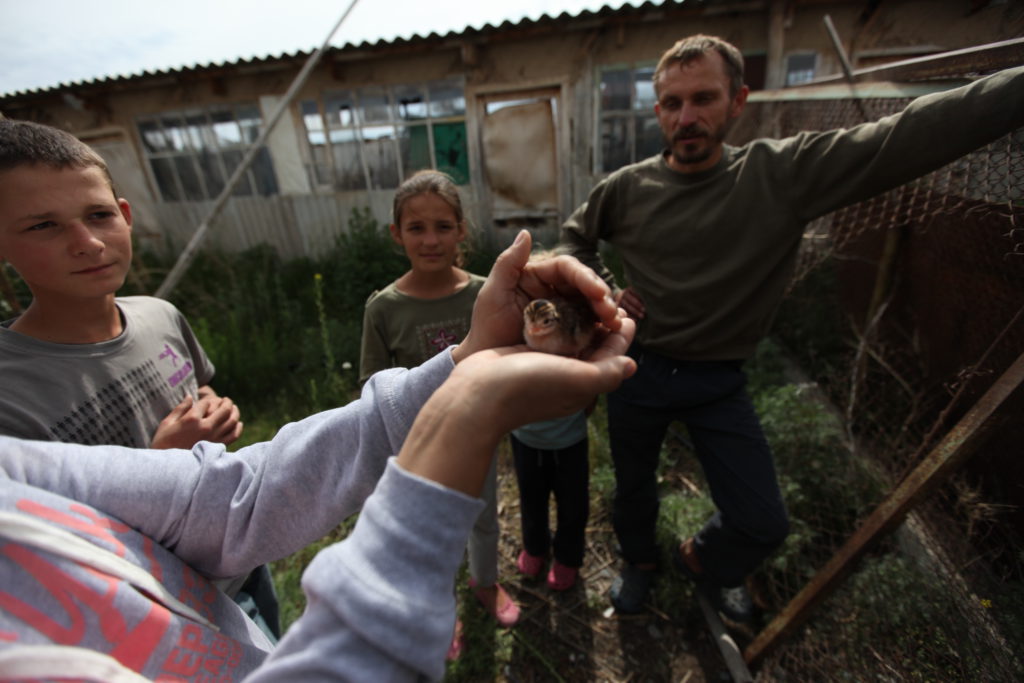
Muratbek: Also, this entire system you have created at the organic farm needs a lot of knowledge, right?
Andrey: Right. This is why we call it a regional training centre. We learn ourselves and share knowledge here. We are the main students. [Laughs]
Muratbek: So you are not dividing into teachers and students. Teachers are also students?
Andrey: Some people from the south coast of the lake are supposed to come soon. They’re developing a permaculture in the village of Bokombayevo. It’s a women’s association. They want to come and see how it works in practice. They already have some experience. I told them that they would share their experience, and I would share mine. It’s the same with children, now I’m learning something from them. If I have any questions about wood, I ask my son Nikita. He’s much more experienced now.
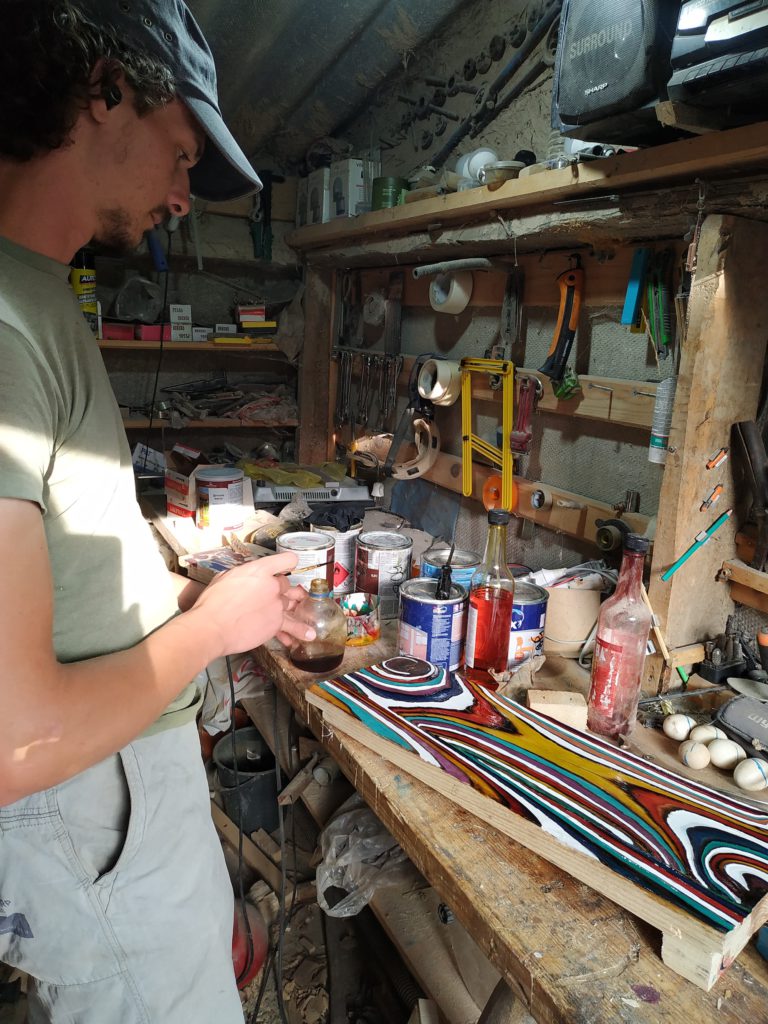
Gulnara: When I met you first time and learned that your children do not go to school, it was a shock to me. How do they receive an education?
Olga: The school format is not necessary now if one parent can teach a child. I am not saying that I can teach everything. That’s impossible. Those children who know “everything” are somewhat inadequate.
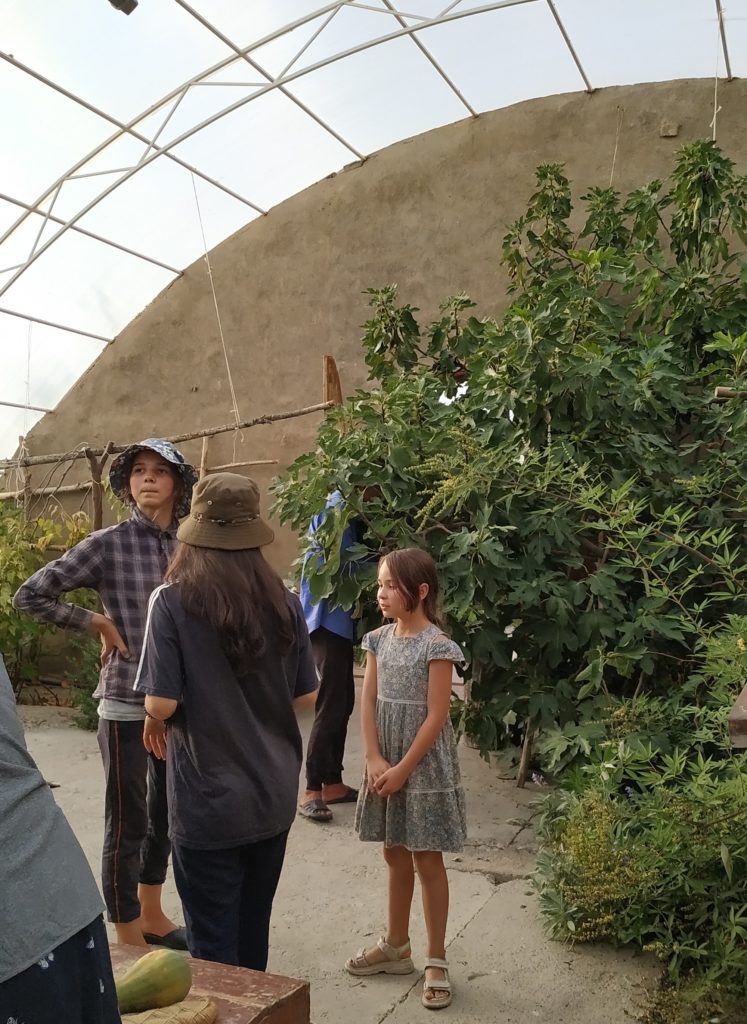
Gulnara: Why don’t you want to send your child to school?
Olga: I think the programme was already abnormal, and then they changed the curriculum, introducing new textbooks that may contain mathematical problems with flaws in logic. Either that’s a mistake or it’s intentional. Now everything is done for money. Students won’t get a good grade unless they take extra classes, so the school extorts money from them. Or pupils from rich families sit at the front desks and the rest are put at the back ones. It’s segregation, stratification on the basis of nationality, on the basis of property. It’s a very scary thing. You have to teach, yes, I agree, but how? Or when there are forty children in a class, how do you teach them?
Gulnara: What is your teaching method?
Olga: I do a free form of teaching, using video lessons, some lectures and historical video clips, and even Soviet-era textbooks. People have often asked me about my children’s socialization. But it’s a complicated concept. Socialization begins in the family. The family must be good and support education in the broad sense. Not one that sits in front of the TV, right? And if everything is normal with their father, their mother loves them and their parents do not drink, the children are wonderfully socialized.
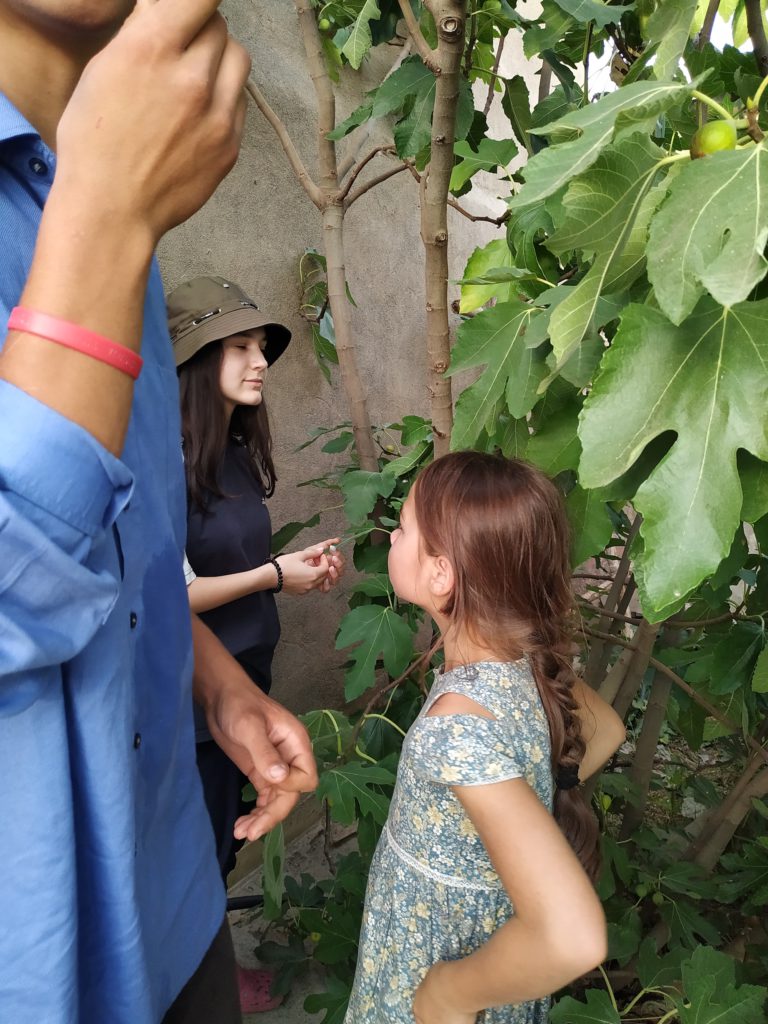
And then they go out into society. If a person is from a dysfunctional family, that kid probably will be bad socialized at school. And children are cruel in general, and I do not like this addiction to gadgets or the potential for bullying those who do not follow a fashion or trend. Parents cannot do anything about this. Fortunately, our children have escaped this external influence. They have grown up in the family based on family values and daily work, and I like the result. They do not ask me: “Mum, buy me a smartphone, because everyone has one in class.” No, my eldest son had his first mobile phone when he was sixteen years old and it was mostly just for making calls. We limit access to the computer, because I think communication should be mostly face to face, not from the internet. I teach them not to hang out on social media, but to develop, to learn by themselves, study on courses, do sports, go to the mountains. Well, they socialize a lot, friends come to us, people get acquainted and they socialize.
Gulnara: What else can you say about education for children?
Olga: They must be educated by labour, and parents themselves must work. First of all, the parents point something out. If parents do sports or work, they will teach their children to do this. If you sit in front of the TV, eating chips, and say to your child, “Hey, go there, stop sitting at the computer,” this has no value as parenting. No, you have to turn everything off and go with your child to the stadium. All the kids in the city are sitting at their computers. Going to play outdoors is boring for them. I can’t take my nephews to the mountains or anywhere like that.
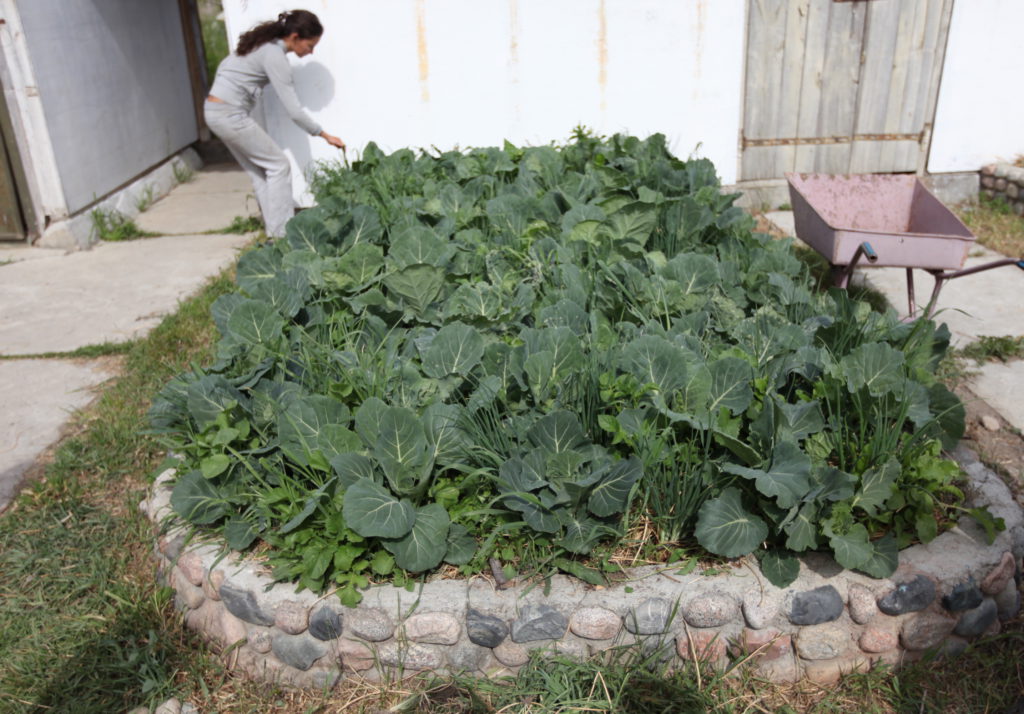
Gulnara: How old are they?
Olga: Sixteen and eighteen. They don’t want to come here. They don’t want to work in the fresh air; they prefer to just sit behind a computer. And the boys were active, they were running around, playing . . . That’s how we lose a generation. They are young old men! No, children should be out in the fresh air to know what nature is, to understand something, at least the basics about animals and plants. This is the environment for survival. We have been developing for a million years, and the artificial environment creates a special type of people unlikely to return to nature. They will be dependent on electricity, heat, toilets, food deliveries. They will just have a crazy panic if something suddenly goes wrong. No one guarantees anything about how comfortable it’s going to be. We decided to teach the children this, even about survival, when there is no light sometimes, for example, and the need to heat the stove.
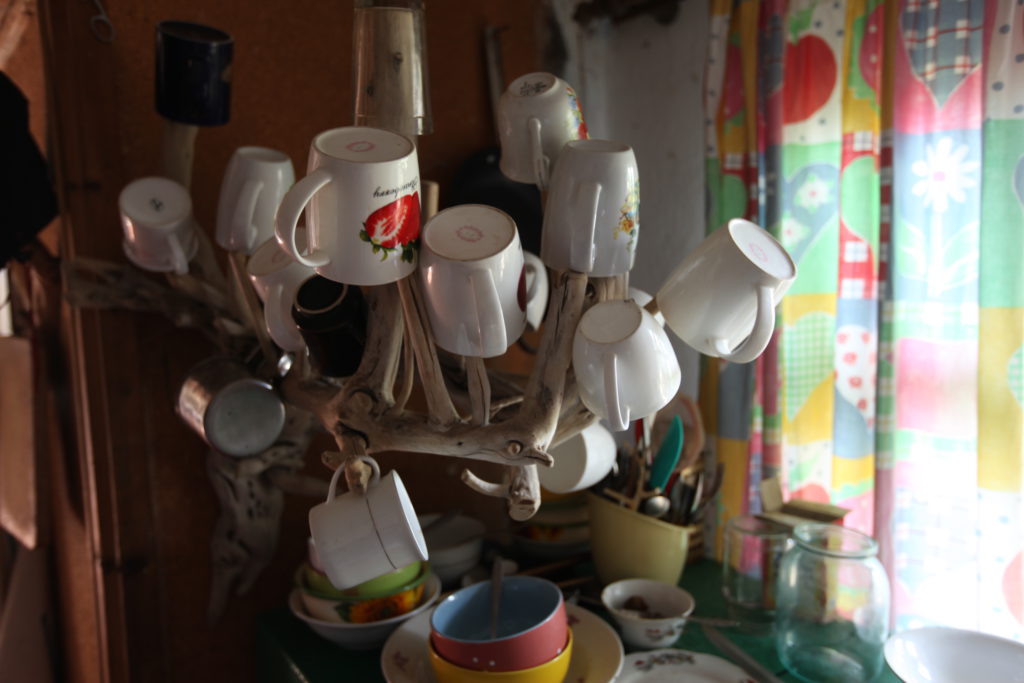
Gulnara: Don’t the kids mind?
Olga: Absolutely not. It’s important to get them used to it while they’re young. When a child is small, it’s like a game, it’s interesting for them. But later on, it’s already uncomfortable, dirty, cold, boring. Humans get lazy. Why bother to build a family, to move in together, to learn something? You have cheap food and a gadget. That’s it. You have your bread and visual stimulation, and you don’t have to move. The brain is fed information; it just gets loaded with something, and that’s enough for them to live.
- License:
- CC-BY
